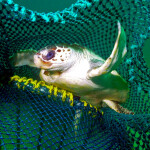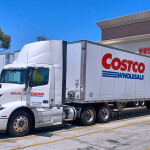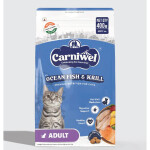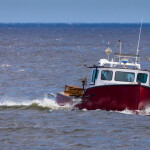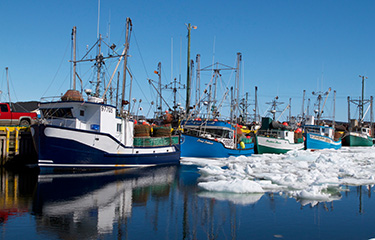The Fish Food and Allied Workers (FFAW) Union in Newfoundland and Labrador, Canada has said it believes it is unlikely the province's full snow crab quota will be caught.
In May, FFAW urged the fishermen it represents to hold out against low prices offered by the province's processors after the Standard Fish Price-Setting Panel settled on a minimum price of CAD 2.20 (USD 1.64, EUR 1.52).
"The fishery has now been operational for nearly three weeks, and yet only a small percentage of snow crab has been landed to date – at a smaller ratio over the same period of time in previous years," it said in a press release. "With the fishery expected to close in just a few short weeks, and even if season extensions are granted by DFO, the possibility of all quota being landed this year is becoming more and more unlikely."
FFAW-Unifor said it conducted an online poll of license-holders and found nearly 70 percent believe they won't be given the opportunity to land their quotas this season due to issues with harvesting schedules.
“Harvesters understand that we must have a paced fishery to ensure quality and capacity. However, companies are implementing harvesting schedules that are unfair to certain harvesters and fleets. These harvesters have nowhere else to sell their catch. And most concerningly, small boats are being forced to fish in unsafe conditions in a desperate bid to land whatever quota they are permitted by their buyer,” FFAW-Unifor Secretary-Treasurer Jason Spingle said. “This is a clear signal that something must be done to better regulate the processing industry. Companies cannot justify why some boats have over 200,000 lbs. landed already while others have only been permitted a single trip, or in some cases, none at all."
Spingle and FFAW called for stricter regulation of processing companies, the issuance of additional processing licenses, and the allowance of outside buyers into Newfoundland's snow crab fishery.
“Processing companies are engaging in unethical business behaviour to the targeted detriment of the small boat fleet in our province. The fishery may be open with a price agreement in place, but with no avenue to sell, harvesters are still in crisis,” he said. “Our union has made every effort this year to work out a fair proposal to ensure all fleets have a fair opportunity to participate in the fishery, but at every turn we’ve only been met with the same fish merchant-style tactics."
Simulataneously with its call for stricter regulation and the opening of the Newfoundland market to processors based in the Canadian Maritimes, FFAW also called for federal financial support after what it calls the “post-pandemic collapse” of the snow crab fishery.
During the pandemic, snow crab saw a boom as prices jumped, but in early 2023, prices plummeted and the industry experienced a reversal of fortune. In January 2022, the price was USD 19.00 (EUR 17.65), but in January 2023, it had dropped to USD 7.50 (EUR 6.97). As a result, the province's fishermen are facing “significant income shortages this year.”
“Both federal and provincial governments declared fish harvesters and plant workers essential workers during the onset of the Covid-19 pandemic – critical to both the economy and food supply of the country. Now, these Canadians need help in the form of economic relief from the federal government,” FFAW President Greg Pretty said in a release.
FFAW said it has based its proposal on previous models of economic support, and it is also proposing temporary emergency changes to employment insurance qualifications for seasonal labor claims.
“We’ve done our homework and put together a funding proposal that would provide much needed support for enterprise owners, crew members, and other fishery workers impacted by the collapse in the snow crab market this year,” Pretty said. “It’s not unusual for government to support prime producers, and help is certainly warranted here especially given the pandemic related causes involved in this situation.”
The FFAW is calling for the government to lower the minimum insurable hours to qualify for certain benefits, and offer a CAD 4,000 (USD 2,992, EUR 2,781) economic hardship grant, to all fisheries workers. For fish harvesters, FFAW is asking for an economic hardship grant per fish harvester of CAD 10,000 (USD 7,481 EUR 6,952) per affected fish harvester to “supplement lost income” in addition to an up to CAD 15,000 (USD 11,221, EUR 10,428) grant to enterprise-owners who invested in the snow crab fishery within the last 10 years.
“Our members are facing serious income shortages this year and inshore enterprises are facing bankruptcy, so in place of proposing complicated and convoluted changes to the federal employment insurance system for fish harvesters, we’re proposing a non-repayable grant program,” Spingle said. “These funds would provide the economic assistance needed to protect the existing investment and infrastructure of the inshore, owner-operator fishery and the rural communities that rely on the industry, so that these people can make it to next season.”
Combined, these issues are enough to drive FFAW to call for a concerted action from its members, according to Spingle.
“It’s very likely our union will be taking this fight to the streets in the coming days unless we can ensure fairness for all of our members,” Spingle said.
The Association of Seafood Producers, the organization that represents Newfoundland's snow crab processors, had posted no comment in response as of 12 June.
Photo courtesy of Lynn A/Shutterstock

